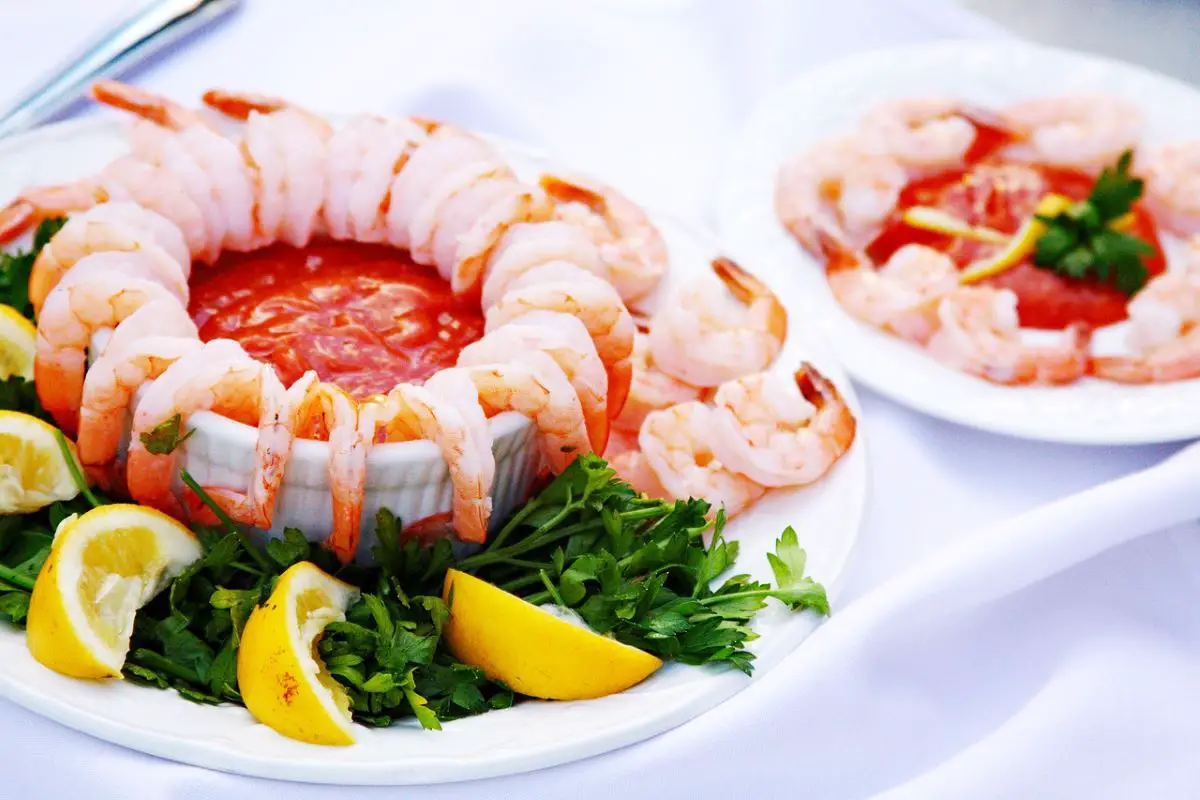If you love seafood, you probably love shrimp. Shrimp is super versatile, pairing well with various cuisines and it’s easy to prepare. But before you go grabbing that bag of raw shrimp at the grocery store, here are some things to consider.
First off: Yes, you can eat raw shrimp, but that doesn’t mean it’s safe to do so. There are a few precautions you should take with raw shrimp.
If freshness isn’t an issue (and it shouldn’t be unless you’re in a very remote area), then your biggest worry is contaminants like bacteria and viruses. These are more of a concern with warm-water shrimp than cold-water (or saltwater) shrimp because those are more likely to have been farmed or caught in areas where contaminants may be present. If the water is contaminated from industrial runoff or sewage, it most likely contains bacteria or viruses that can make you sick if ingested.
In general, it’s safer to cook your shrimp than to eat them raw—this will kill any food-borne pathogens for sure, which is never true for raw meat products.
Is It Safe To Eat Raw Shrimp?
Raw shrimp can be safe to eat; however, you should ensure that they are fresh, properly frozen, and correctly prepared. Eating raw or undercooked shrimp can put your health at risk because of the risk of food poisoning associated with the bacteria in the shrimp.
Contamination
Shrimp can carry bacteria and viruses that cause food poisoning when eaten raw. Thoroughly cooking the shrimp kills these microbes. Shrimp also harbors naturally occurring worms called “nematodes.” These worms are microscopic, but a high enough concentration can cause food poisoning. Cooking kills nematodes, too.
Freshness
The freshest shrimp is found in coastal areas where the catch is immediately brought to market. It’s safest to eat cooked shrimp from a grocery store located in a coastal area rather than one far from the coast. The time it takes for fish to make its way from the fishing boat to your local grocery store or restaurant increases the likelihood of bacterial contamination or worm infestation. You should also consider how long it has been since you bought your shrimp; seafood spoils quickly, so it’s important to use raw seafood as soon as possible after buying it.
What Are the Dangers When You Eat Raw Shrimp?
Raw shrimp can contain all sorts of bacteria, which can cause anything from a mild allergic reaction to a serious case of food poisoning. The worst part is, you’re probably going to have to experience a bout of food poisoning before you even start thinking about taking precautions against eating raw shrimp.
Here are the most common dangers when you eat raw shrimp:
- Allergic reaction
- Gastroesophageal reflux disease (GERD)
- Stomach ulcers
- Food poisoning due to Vibrio vulnificus
- Shrimp allergy
What Is The Best Way To Prepare Shrimp?
Shrimp can be prepared in several ways, from grilling to stir-frying. However, there are some common mistakes that you should avoid when preparing shrimp.
The most important thing to remember is that shrimp cook very quickly. The moment they turn opaque and curl up, they’re done. You don’t want to overcook them, or you’ll end up with shriveled little crunchy things. Undercooked shrimp are tough and largely flavorless. So please don’t walk away from the stove while cooking them. They go from raw to finished in a matter of seconds!
When buying shrimp, make sure they’re not dead. Sometimes they will be sold in a tank full of water, rather than on the ice, so you can see if they’re moving around or not. Make sure the tank is clean and full of fresh water and that the water isn’t cloudy or murky looking. If it is cloudy or murky looking, the shrimp may have been dead for too long to be safe to eat (though some stores leave the water dirty on purpose to keep the shrimp from escaping).
Which Other Seafoods Cannot Be Eaten Raw?
Not all seafood can be eaten raw. A lot of seafood can’t be! The main reason some seafood shouldn’t be eaten raw is that it could make you very sick.
Raw or undercooked fish and shellfish can contain harmful bacteria and parasites. Eating them could result in vomiting, diarrhea, fever, and other types of food poisoning.
Some fish that cannot be eaten raw are grouper, monkfish, snapper, redfish, swordfish, tuna, yellowtail and amberjack. Some shellfish that cannot be eaten raw are scallops, mussels, and clams.
You can eat oysters raw if they were harvested from waters with low bacteria levels, which will not make you ill.
Is It Safe To Eat Raw Meat?
Raw meat is a common ingredient in many dishes and recipes, but many people are concerned about the safety of consuming raw meat. In most cases, raw meat is safe to eat as long as it’s been handled correctly.
The reason that raw meat is dangerous to consume is that it can contain harmful bacteria like salmonella and E. coli, which can cause food poisoning. While these bacteria are present in both raw and cooked meats, undercooking or not cooking meat thoroughly enough can cause them to survive. They can also spread from one food item to another if they aren’t properly separated or stored.
To avoid contracting food poisoning, always wash your hands before preparing any food, especially raw meat products. Keep the kitchen counter clean and store all meats separately from other items in the refrigerator. Avoid cross-contamination by washing all utensils between uses. Always cook all meats thoroughly before serving and ensure that they reach a temperature of at least 145 degrees Fahrenheit before being consumed.
Conclusion
Shrimp is a delicious and versatile ingredient that can be used in various dishes, from stews to appetizers. Unfortunately, shrimp also carries risks because they can become contaminated with harmful bacteria while growing in the ocean. If you’re eating raw shrimp, it’s important to make sure you’re following all food safety guidelines.
Keep in mind:
- Never eat raw shrimp that has not been frozen for at least 10 days – 15 days is even better
- Do not eat raw shrimp that does not smell like the ocean (shrimp should smell like the sea)
- Never eat raw shrimp that smells bad or feels slimy when you touch it; if there’s anything suspicious about your raw shrimp, throw it out immediately!
You May Like These Articles As Well:
 Being Human
Being Human




